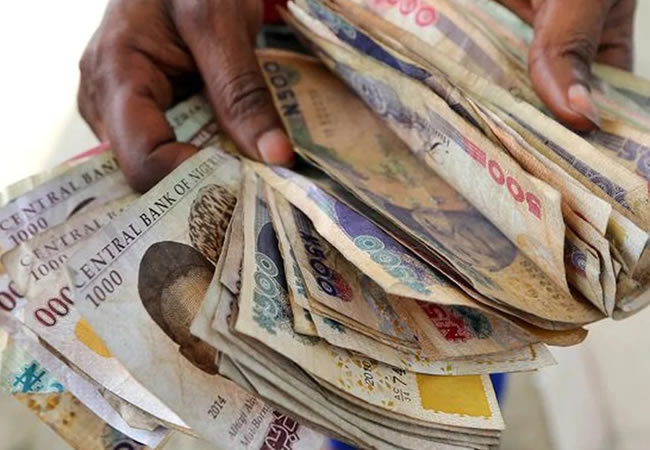Thanks to heightened regulatory interest in currency rate stabilization, the naira is regaining ground in foreign exchange markets; in March, both official and black market rates notably improved.
Early in the year, the local currency began to lose its appeal, which prompted the monetary authorities to reevaluate its long-standing foreign exchange strategy. Due to higher US dollar inflows and enhanced market confidence, the Nigerian naira recovered almost 22% of its value in the foreign exchange market in March.
The substantial rise in the value of the local currency was a result of the central bank’s action to reduce gaps in the foreign exchange markets by placing limitations on deposit money banks and bureau de change operators.
The authority’s efforts—combative and directive—to track down shadow economic players and FX whales that bet against the local currency across the sphere yielded results. Since Binance cryptocurrency peer-to-peer exchange trading was halted, demand for the US dollar has reduced at the parallel market to the extent of FX sold to Bureau de Change operators.
Early in the year, speculative activity caused the market to experience significant foreign exchange challenges, which caused the exchange rate to drop to almost N2000 per US dollar. The apex bank’s ability to raise foreign currency supply helped stabilise the worsening exchange rate in the official market.
Cleaning up the mess created by the dark economy players, the CBN withdrew the licences of some Bureau de Change operators and recommenced subsidised FX sales with a cap on spread for currency traders in the alternative market.
The first quarter of the year saw a sharp increase in FX inflows, driven by growing confidence in the currency markets.
In response to the recent drone attack by the Ukrainian government on Russian oil refineries, which impacted at least 21.0% of the nation’s supply and widened the gap in the world supply, the price of Brent crude oil increased by 4.1% to close the month at $87 per barrel.
Foreign exchange inflows in March contributed to a strengthening of Nigeria’s gross external reserves. According to information from the CBN, foreign reserves rose by 0.7% to close at $34 billion, –covering import bills for seven months.
The surge was supported by inflows from creditors, oil sales, and offshore investors amid ongoing reforms in the FX market, Afrinvest Limited stated in its latest market update.
Experts stated that these elements made up for the decrease in crude oil output. According to OPEC, Nigeria’s oil production fell to 1.3 million barrels per day (mbpd) in February from 1.4 million barrels per day (mbpd) in January 2024.
The official exchange rate at the Nigerian autonomous forex market closed at N1309.39 per US dollar, according to data obtained from FMDQ Securities Exchange. The value of the naira versus the US dollar increased by 21.8% in March as a result of substantial investor inflows and increased foreign exchange market liquidity.
Following an increase in the benchmark interest rate to 24.75%, Nigeria has begun to draw in more capital through increased sales of open market operations (OMO bills).
In the parallel market segment, the Naira gained 19.6% against the USD to close at ₦1,300.00, according to Afrinvest Limited. Analysts noted that daily average turnover in the Nigerian autonomous forex market segment improved by 8.7% to settle at $857.8 million in the just concluded month.












